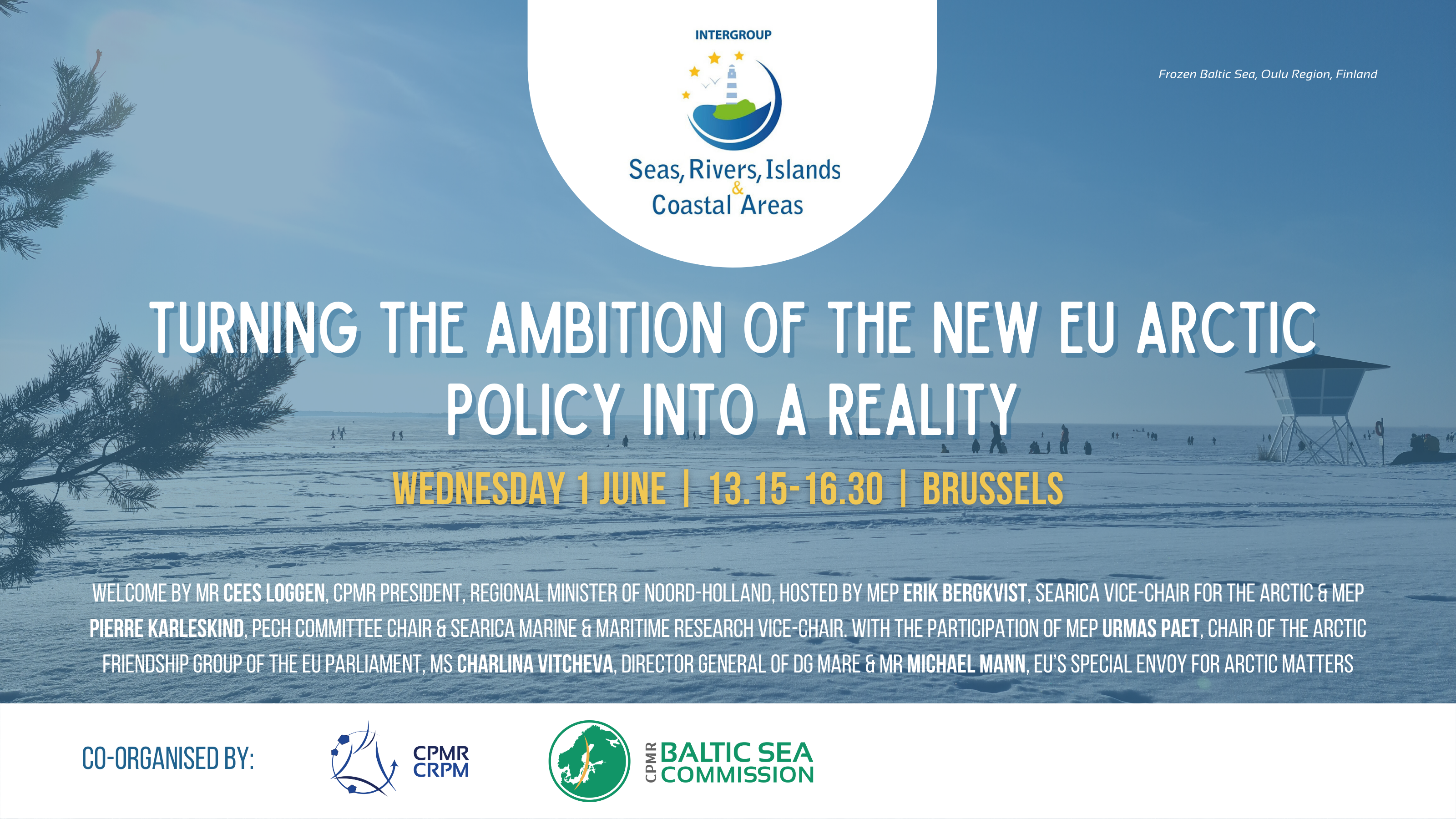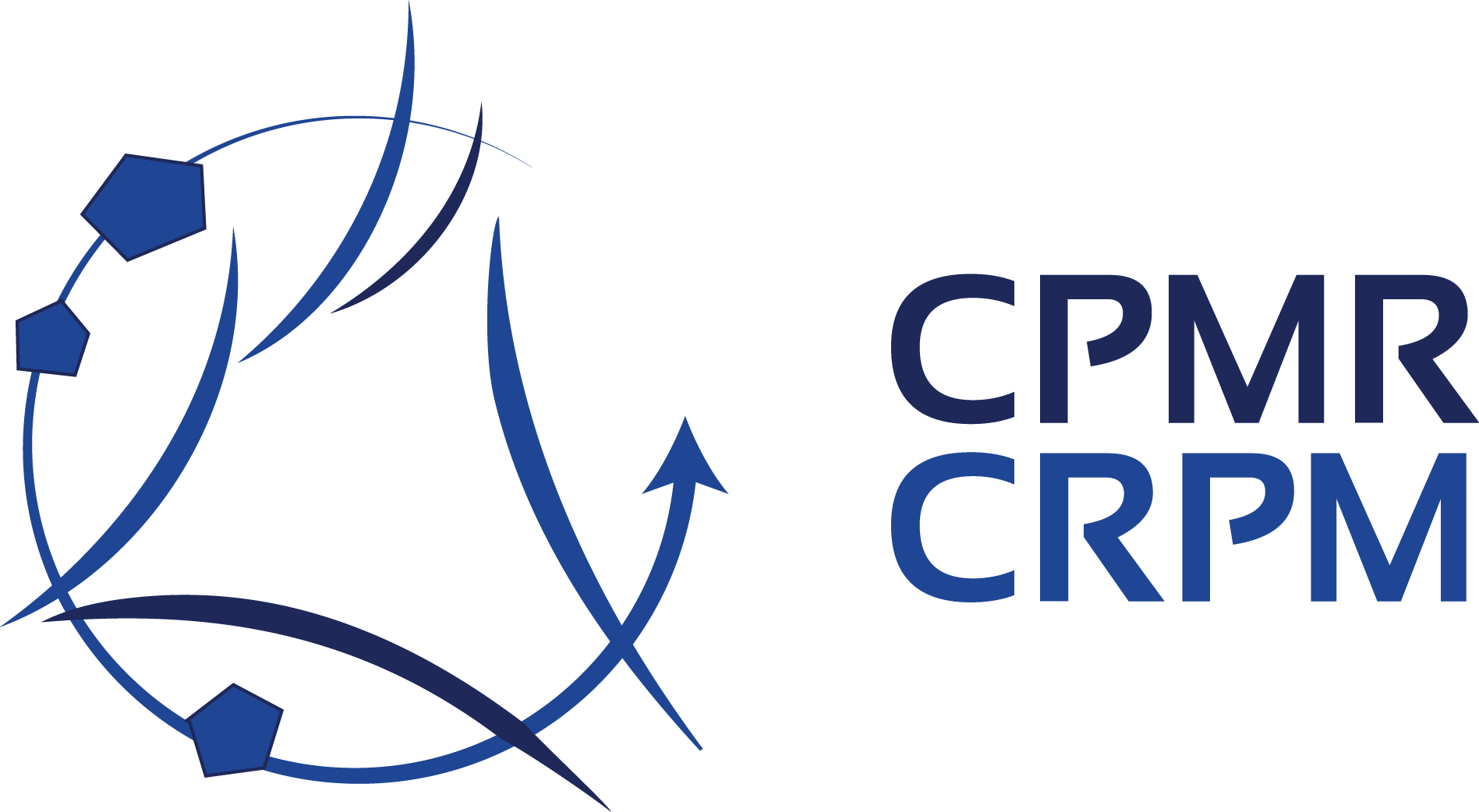Turning the ambition of the new EU Arctic Policy into a reality

Turning the ambition of the new EU Arctic Policy into a reality
Organised with the support of the CPMR Baltic Sea Commission Arctic Task Force
Wednesday 1 June 13.15-16.30 Brussels
4th floor, House of the Dutch Provinces, 59-61 Rue de Trèves, 1040 Brussels
Standing lunch 12.15-13.15
Watch the video presentation by Mr Olivier Poivre d'Arvor, French Ambassador for the Poles and Maritime Issues here
Context
After a broad consultation process with institutional actors and stakeholders, in October 2021 the European Commission and the European External Action Service published a joint Communication “A stronger EU engagement for a greener, peaceful and prosperous Arctic” to take into consideration two major challenges in the Arctic, namely climate change and geopolitical competition. This Communication anchored the EU’s strong commitment to reinforce its role in Arctic matters and overall goal to ensure a peaceful, sustainable, and prosperous Arctic.
The Communication should spark further support for the on-going fast economic transformation in the European Arctic, where massive investments in the green transition are happening and contributing overall to the EU’s climate neutral ambition. It also calls for strengthening the sustainable blue economy in the Arctic and contributing to territorial attractiveness of coastal communities. Promoting science, research and innovation for the benefit of the Arctic is a cornerstone of the new EU Arctic Policy. At the same time, the new EU Arctic Policy should help to address Arctic challenges, primarily related to climate change, demography, connectivity and geopolitical tensions.
The new geopolitical situation in Europe highlights that all efforts to promote further multi-level cooperation and interregional cooperation to maintain the Arctic as a low-tension area is crucial. In this perspective, the revised EU Arctic Policy has a major role to play to encourage and structure further multi-level and cross-sector cooperation in the Arctic, through various EU instruments and programmes.
Objectives of the event
The time has now come to deliver the EU Arctic Policy. This event will focus specifically on the implementation of the Communication, looking at governance aspects, the need to integrate Arctic issues within the EU policy framework whilst maintaining the Arctic as a low-tension area.
- The first session will focus on the potential as well as the challenges linked to the green transition and sustainable blue economy in the Arctic;
- The second session will focus on the importance of increased interregional cooperation to maintain a peaceful Arctic.
Hosted by MEP Erik Bergkvist, SEArica Vice-Chair for the Arctic and MEP Pierre Karleskind, Chair of the PECH Committee of the European Parliament and SEArica Vice-Chair for Marine and Maritime Research, the event will bring together representatives from regional, national and EU levels to discuss the implementation of the new EU Arctic Policy. Welcome by Mr Cees Loggen, CPMR President, Regional Minister of Noord-Holland. With the participation of MEP Urmas Paet, Chair of the Arctic Friendship Group of the European Parliament, Ms Charlina Vitcheva, Director General of DG MARE, Mr Michael Mann, the EU's special envoy for Arctic matters & Mr Tomas Mörtsell, Second Chair of the Regional Development Committee, Region Västerbotten (Sweden) and Chair of the CPMR Baltic Sea Commission Arctic Task Force
Event Properties
| Event Date | 01-06-2022 13:15 |
| Event End Date | 01-06-2022 16:30 |
| Categories | Conférence 2019-2024,Baltic Sea,Biodiversity and Ocean Literacy,Blue Economy, Maritime Industries and Ports,Climate & Governance |
| Attachment | SEArica Arctic Final Agenda.pdf |
What is an Intergroup?
The Seas, Rivers, Islands and Coastal Areas Intergroup is one of the 27 Intergroups that were approved on 11 December 2019 by the Conference of Presidents for the 9th legislature of the European Parliament. Intergroups can be formed by MEPs from any political group and any parliamentary committee with a view to holding informal exchanges of views on particular issues and promoting contact between MEPs and civil society.
The Seas, Rivers, Islands and Coastal Areas Intergroup brings together more than 100 MEPs from 7 different political groups and 23 Member States.
Intergroups are not Parliament bodies and therefore may not express Parliament's opinion.
Intergroups are subject to internal rules adopted by the Conference of Presidents on 16 December 1999 (last updated on 11 September 2014), which set out the conditions under which intergroups may be established at the beginning of each parliamentary term and their operating rules.










